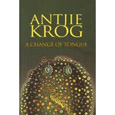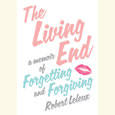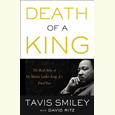Migrants Through Time
Mohsin Hamid talks with Chapter 16 about his acclaimed literary bestseller, Exit West
“We are all migrants through time,” Mohsin Hamid writes in Exit West, his fourth novel, a slender, poetic tale that packs a wallop as it traces the odyssey of two young lovers escaping their war-ruined city in the Middle East. Hamid comes by this sentiment naturally: born in Lahore, Pakistan, he spent part of his childhood in the United States and was educated at Princeton and Harvard Law. As a writer, he has divided his time between Lahore and abroad—London, New York, the Mediterranean—and is a dual citizen of Pakistan and the United Kingdom.
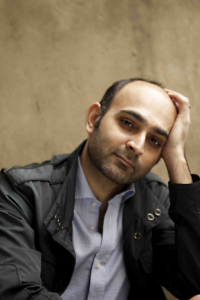
In Exit West, a series of magic doors conveys Nadia and Saeed first to the Greek island of Mykonos and then on to London and northern California, dread and desire their traveling companions. A delicate weave of Narnia-like fable, shrewd observation, and strikingly gorgeous prose, Exit West draws its power from the global refugee crisis, the erosion of traditional nation-states, and their porous, often arbitrary boundaries.
Over the course of his career Hamid has probed the entrenched conflicts and potential reconciliations between East and West, and he continues to tap that vein here. But the political often yields to the personal in Exit West, as Saeed and Nadia navigate lust and love, commitment and betrayal. The novel glows with eros and familial bonds, small dramas and broad-canvas themes. Hamid’s work conveys a deep moral questioning, one writer’s valiant effort to make sense of a world turned upside down. He is not only a poet but also a philosopher.
Hamid recently answered questions from Chapter 16 via email.
Chapter 16: Exit West pivots on a series of magic doors that ferry two young lovers, Nadia and Saeed, away from a bloody conflict. You’ve used devices of magical realism before, even in novels that are fundamentally realist in nature. What’s the relationship between magic and realism for you?
Mohsin Hamid: I like to write fiction that is slightly skewed from consensus reality. Whether that is the surreal trial that frames my first novel, Moth Smoke, or the doors in Exit West, I am always looking for ways to tell stories that feel more emotionally true by confessing to being made up, make believe. Writing isn’t reality. Writing is words. But reality isn’t reality either—what we call reality is often built on false assumptions. I don’t believe in magic, but I don’t fully believe in reality. So I try to abide by the laws of realism but bend them a little, here and there.
Chapter 16: You use the myth-rich Greek islands as vivid settings for scenes in both Exit West and The Reluctant Fundamentalist. How have you been influenced by classical literature, Western and Eastern?
Hamid: I first visited the Greek islands in 1993. I’ve been back many times since. They have an enormous power for me. They are beautiful, special places. I was fascinated with Greek mythology when I was a kid. Stories of Zeus and Hera jostled up against stories of Tolkien’s Middle Earth and stories of the Arabian Nights. I never really differentiated between classical literature and fantasy literature. I remain a fan of both. I’m re-reading the Iliad these days, and I’ve been watching Game of Thrones.
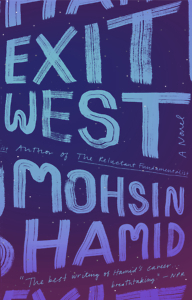 Chapter 16: Exit West has been widely embraced in the United States: a finalist for the National Book Critics’ Circle prize; a New York Times Ten Best of 2017; the lead review in The New York Times Book Review; and that rare creature, a literary bestseller. Are there American novelists whose work you consider influences on yours?
Chapter 16: Exit West has been widely embraced in the United States: a finalist for the National Book Critics’ Circle prize; a New York Times Ten Best of 2017; the lead review in The New York Times Book Review; and that rare creature, a literary bestseller. Are there American novelists whose work you consider influences on yours?
Hamid: So many. Joyce Carol Oates and Toni Morrison were both teachers of mine, and important influences. I admire James Baldwin, Joan Didion, Hemingway, Fitzgerald. The list goes on and on.
Chapter 16: The novel’s final scene, set decades in the future, unfolds as both coda and benediction. In a political climate for refugees that doesn’t exactly engender hope, did you ever envision different fates for either or both characters?
Hamid: I’m a father. Finding some way to be optimistic is part of the job description. But also I believe that critical optimism is a political necessity. Pessimism gives rise to nostalgic politics, and nostalgic politics tends to be racist, xenophobic, exclusionary, regressive, and very, very dangerous.
Chapter 16: This novel has been widely praised for its evocative depiction of the global refugee crisis—”all over the world people were slipping away from where they had been, from once fertile plains cracking with dryness, from seaside villages gasping beneath tidal surges, from overcrowded cities and murderous battlefields”—but it also suggests changes that await what we think of as stable populations. In your view, what should the West expect in the coming years?
Hamid: The West as we know it will cease to exist. People (and ideas) from the East and the South will live in the West. And people (and ideas) from the West will live in the East and the South. What we call the West is a recent invention. Cities, humans—these exist. But the West is just an idea, and that idea is changing, dissolving, reforming.
Chapter 16: Both Saeed and his father are sympathetic, complex men. In our #MeToo moment, I’m especially grateful for beautifully drawn male characters who are morally decent and aware. Is this something you considered as you wrote?
Hamid: To be a man and gentle in times of great conflict and violence requires enormous strength. I wanted to explore that kind of strength, something different from the toxic masculinity that we are so often told is “strong” but is actually weak and harmful, to women and to men too.
[This interview originally appeared on April 4, 2018.]
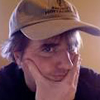 Hamilton Cain is the author of This Boy’s Faith: Notes from a Southern Baptist Upbringing and a finalist for a 2006 National Magazine Award. A native of Chattanooga, he lives with his family in Brooklyn, New York.
Hamilton Cain is the author of This Boy’s Faith: Notes from a Southern Baptist Upbringing and a finalist for a 2006 National Magazine Award. A native of Chattanooga, he lives with his family in Brooklyn, New York.

